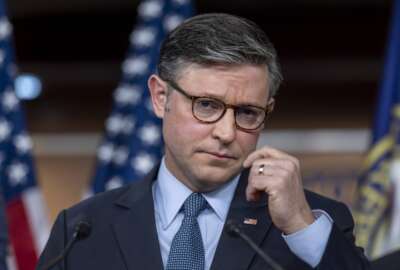The role of government in private innovation
Author Josh Lerner\'s new book examines what, if any, role governments should play when it comes to spurring innovation and investing in venture capital.
wfedstaff | June 3, 2015 1:34 am
By Dorothy Ramienski
Internet Editor
Federal News Radio
Should the federal government devote millions — or billions — of dollars to support and promote entrepreneurship and venture capital? Should they stay completely away from innovation in the private sector?
For every success various governments have had, there have also been failures, and analysts often wonder what role government should play when it comes to investing in entrepreneurial activity
Josh Lerner is a professor at the Harvard Business School and author of Boulevard of Broken Dreams: Why Public Efforts to Boost Entrepreneurship and Venture Capital Have Failed–and What to Do About It.
He explained there are often pitfalls.
“In many state efforts, which were done with the spirit of boosting entrepreneurship, ended up either in situations where there was cronyism . . . To cases where it was just simply an ill-considered kind of effort.”
Lerner gave a few examples. In one case in Nebraska, the chairman of the state entrepreneurship initiative ended up getting loans for himself for the fund. In another instance, the French government spent millions on installing a broadband network in Brittany, and expected businesses to crop up simply as a result of that action. They didn’t.
Part of the problem is perception. Many in the public are wary when government agencies hand out large sums of money to businesses.
“When you get the situation of government agencies directly handing out large sums of money to individual companies, it just opens the door for all sorts of what you might describe kindly as ‘influence activities’ in terms of either outright lobbying, earmarks or various kinds of subtle pressure being brought to bear. [This can] lead to not only not the best companies getting funded in the first place, but then [it also] becomes extremely difficult to terminate companies which are under performing.”
This does not mean, however, that all is lost and that governments should never invest in venture capital. Lerner explained that there are really three main things government should focus on if they want to invest successfully.
“First of all, you see that it’s not just about handing out money to companies or to venture firms. There’s a real attention to the environment and making sure that the whole ecosystem is entrepreneur friendly — tax policy, regulatory [issues], dealing with providing transfer and making that work well. It’s a whole set of things in terms of setting the table that are very important.”
In addition, successful programs tend to have a large emphasis on matching funds.
“Rather than just simply having the government official go and pick winners — and it’s not so much that people aren’t smart or dedicated in government, but it’s a very hard process to figure out which new technology, which new company, which opportunity is going to be the best one. The programs that seem to work best have been the ones that try to say — let’s get some input from the market in terms of getting some sort of signal of what succeeds and what doesn’t.”
Finally, it never hurts to pay attention to detail.
“The programs that have succeeded have really sweated the small stuff — have really thought through how they designed it and put the program together in a way that wasn’t self-defeating. So often in these efforts, rules that seem innocuous end up having profound impact.”
Measuring success or failure isn’t easy, especially if one is entrenched in the project, or has high hopes for it. Lerner said the question of how to gauge whether or not a project is meeting its goals is one of the hardest to answer.
“In a lot of cases, programs that had problems but ultimately turned out to be very successful. I think the success of the small business investment company program in the 50s and 60s would be a great example. Many people were claiming that this thing was an outright failure after two or three years. Well, many of the benefits weren’t really realized until 10 or 15 years afterwards. This is, fundamentally, a long run game.”
One of the biggest mistakes one can make is to give up too early; however, in order to prevent waste, fraud and abuse, real evaluation metrics are key.
“The challenge is to make an evaluation that includes the hard stuff in terms of saying — what kind of return is being generated from it, [and] also more of the soft measures in terms of saying — how have we done in terms of building an ecosystem and creating an environment that’s friendly and conducive to entrepreneurship? To just simply look at the financial return without looking at this other stuff is clearly a mistake.”
Overall, Lerner asserted, the government does have an important role to play. It just has to be careful.
“It seems that when you look at the experience in almost every nation that’s emerged as a entrepreneurial culture, you see the government did play an important role of jump-starting it. This is one of these activities that has what economists would describe as externalities — it’s a lot easier being the 50th entrepreneur than it was being the first one. Somehow the pioneering entrepreneurs pave the path for those who come after them, and that, in many senses where [this happens] is precisely where government ought to spring into action.”
Copyright © 2024 Federal News Network. All rights reserved. This website is not intended for users located within the European Economic Area.





